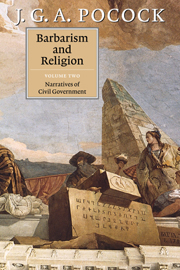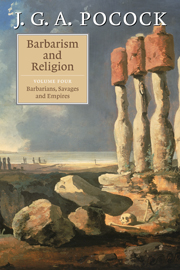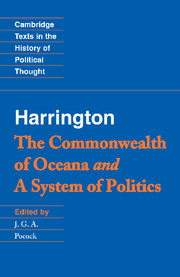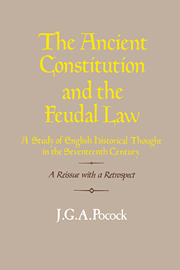Barbarism and Religion
'Barbarism and Religion' - Edward Gibbon's own phrase - is the title of an acclaimed sequence of works by John Pocock designed to situate Gibbon, and his Decline and Fall of the Roman Empire, in a series of contexts in the history of eighteenth-century Europe. This is a major intervention from one of the world's leading historians of ideas, challenging the notion of any one 'Enlightenment' and positing instead a plurality of enlightenments, of which the English was one. In this first volume, The Enlightenments of Edward Gibbon, John Pocock follows Gibbon through his youthful exile in Switzerland and his criticisms of the Encyclopédie, and traces the growth of his historical interests down to the conception of the Decline and Fall itself.
- The culmination of a life's work by one of the great historians of our time, writing about the greatest English historian of all time
- A major reinterpretation of one of the defining cultural moments in European history
- First-time paperback of a work that has already generated major review coverage (including NYTRB), and won a highly prestigious American prize in cultural history
Awards
Winner of the Jacques Barzun Prize in Cultural History of the American Philosophical Society
Reviews & endorsements
"Thus we come back to the English Enlightenment and the point from which John Pocock set out on his magnificent tour de force" Nicholas Tyacke, Times Literary Supplement
"...one admires the breadth of his erudition. Indeed, like Gibbon, [J.G.A. Pocock] is a truly enlightened historian, one who takes ideas seriously and who has no patience for those of our own age who would 'deny the reality of authors and the readability of texts.'" T.H. Breen, New York Times Book Review
"John Pocock is the doyen of contemporary intellectual historians. His eagerly awaited book is a major event in the study of Gibbon in his intellectual context." Professor John Burrow, Balliol College, Oxford
"If there is a single target of my criticism it is the concept of 'The Enlightenment,' as a unified phenomenon with a single history and definition, but the criticism is directed more against the article than against the noun. I have no quarrel with the concept of Enlightenment; I merely contend that it occurred in too many forms to be comprised within a single definition and history, and that we do better to think of a family of Enlightenments, displaying both family resemblances and family quarrels (some of them bitter and even bloody)..." --From the Introduction to Volume 1
"...an ambitious effort to examine the enlightenment through Gibbon's eyes." David Armitage, Lingua Franca
"This is a lucidly written, highly intelligent work." Greenwich, CT Time
Product details
October 1999Hardback
9780521633451
356 pages
236 × 159 × 29 mm
0.69kg
Available
Table of Contents
- Introduction
- Part I. England and Switzerland, 1737–1763:
- 1. Putney, Oxford and the question of English Enlightenment
- 2. Lausanne and the Arminian Enlightenment
- 3. The re-education of young Gibbon: method, unbelief and the turn towards history
- 4. The Hampshire militia and the problems of modernity
- 5. Study in the camp: erudition and the search for a narrative
- Part II. The Encounter with Paris and the Defence of Erudition, 1761–1763:
- 6. The politics of scholarship in French and English Enlightenment
- 7. Erudition and Enlightenment in the Académie des Inscriptions
- 8. D'Alembert's Discours Preliminaire: the philosophe perception of history
- 9. The Essai sur l'Etude de la Litterature: imagination, irony and history
- 10. Paris and the gens de lettres: experience and recollection
- Part III. Lausanne and Rome: The Journey Towards a Subject, 1763–1765:
- 11. The return to Lausanne and the pursuit of erudition
- 12. The journey to Rome and the transformation of intentions
- Epilogue: Gibbon and the rhythm that was different
- Bibliographies
- Index.








